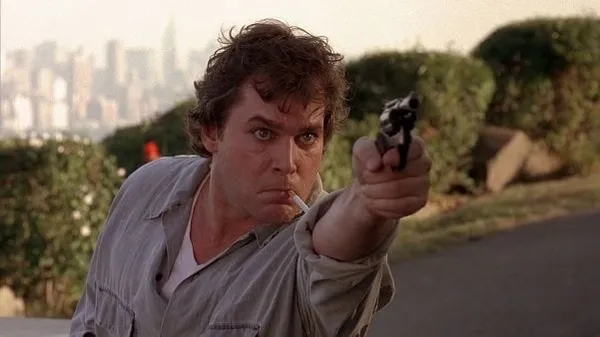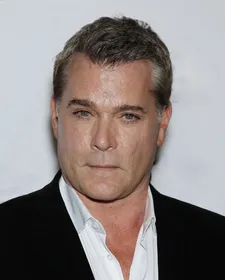 |
| Ray Liotta as Gary Figgis in Cop Land Photo: Miramax |
Goodfellas star Ray Liotta, who has just died at the age of 67, was a regular at the Deauville Festival of American Cinema. Richard Mowe met him several times over the years. This was an interview published at the time of police corruption thriller Cop Land in 1997.
It may have taken him a few decades to reach the cataclysmic revelation but Ray Liotta finally has it sussed that ability has very little to do with success.
He has had plenty of oppportunities to accustom himself to both being flavour of the month one moment, and then being discarded the next. “It’s all so predicated on how your movies do, not your talent. It’s very frustrating but great if you can ride it when it’s happening. It sucks when it doesn’t. The pervading ethos makes you get your priorities right - what exactly you want, whether it’s worth the sturggle, and are the rewards enough. My ideal combination would be a mix of Sylvester Stallone and Robert De Niro - the trappings of celebrity yet the ability to make serious career choices,” says Liotta.
 |
| Ray Liotta: 'I like playing human beings who have lots of sides' Photo: UniFrance |
He has had the chance to observe both in action at close quarters in James Mangold’s Cop Land in which he makes a singular impression as a police officer coping with alcohol and drug abuse. Originally he was in line for the Stallone part of the overweight and over the hill sheriff.
Liotta, 43, shrugs philosophically that the eventual outcome was “the next best thing”. As someone who has made tortured souls his signature from the charmer in Something Wild to the manic psycho in Martin Scorsese’s Goodfellas he relished a character who was more heroic and confused than angry and aggressive.
He had to pile on the pounds, although not as many as Stallone, to give a sense of a person who “was not taking care of himself and who was into self-destruction”. At the time, Liotta jokes, the freedom to binge of Chinese food and drink an extra glass of wine seemed wickely irresistible.
It was only afterwards he had to pay the penalty and take it all off again, not least because his wife, the actress Michelle Johnson, decided he had become overpodgy and the excuse, that it was all for his art, had evaporated. “And it doesn’t disappear any quicker as you get older, even if I am used to working out,” says Liotta, tucking into a plate of steamed vegetables.
The actor’s progress has been nothing if not erratic. Born in Newark, New Jersey, he studied in Miami, the moved back to New York to seek acting work. He cracked commercials, blushingly recalls that he appeared in a K-Tel ad for love songs of the 50s. He dug his way out via a primetime soap, playing a softy in Another World, and stayed with the show for more than two years.
He then hit the doldrums until friend Melanie Griffith helped to land him the part of her dangerous ex-husband in Something Wild for director Jonathan Demme. Fearing that he might be moulded forever as a psycho villain he tried for a change of pace with Dominick And Eugene (as a medical student whose twin brother had mental health problems) followed by the Kevin Costner-starrer Field Of Dreams as the spirit of baseball giant Shoeless Joe Jackson.
They all contributed to upping his profile, but it wasn’t until Scorsese arrived on the scene with Goodfellas that he was able to grasp the chance of true stellar material. Not only was he cast as the main charcter but his particular talents of nervous energy and hints of dark forces at work were employed to best advantage alongside De Niro, Joe Pesci, Lorraine Bracco, and Paul Sorvino. Liotta’s performance helped to make it one of the most memorable films of 1990.
So far the Nineties have given Liotta plenty of exposure - the extreme psycho, again, frightening audiences out of their skulls in Unlawful Entry; the ex-marine sorting out prison power struggles on the futuristic No Escape, and going all starey-orbed again in John Dahl’s Unforgettable (which was). Even the big budget Turbulence (a wacko once more, hijacking a 747 jet) for which he had high hopes, proved a disappointment.
Cop Land, he acknowledges, has restored most of the sheen. “I came out of the box real good,” he says modestly. “I like playing human beings who have lots of sides. If it happens to be a serial killer then I want to bring in as much reason and understanding as possible rather than just playing a monster. You have to take your career almost one movie at a time, and make the best decisions you can at the time.” His next decision was to play another bad cop in Phoenix, a low-budget independent film with Anjelica Huston, Anthony LaPaglia and Jeremy Piven.
He remains surprised, though, that the bad guy image is the one that has stuck. But then, he concedes that the devil usually has the best lines.





















